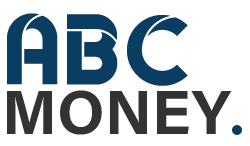Commercial mortgages are one of many ways to inject finance into a business – but it’s essential to understand the variances between each type of borrowing before you commit.
The first point to clarify is that a residential mortgage is a very different product.
Business mortgages can be used to purchase a trading premise, but they’re also a viable way to raise funding to invest in the company. Likewise, the reason behind your business loan application will dictate the correct type of borrowing to apply for.
Here the Revolution Brokers team explains the differences between a business loan and a commercial mortgage, so you’ve got all the information you need to make informed decisions.
If you need support from the commercial borrowing experts, please get in touch on 0330 304 3040 or email us at info@revolutionbrokers.co.uk, and we’ll run through your options.
Borrowing Rates on Business Loans
Cost is always an important factor!
Whether you’re applying for financing to purchase new equipment, expand your workforce or fill gaps in your cash flow, the interest rates will make a big difference.
Generally, commercial mortgages are cheaper. That’s because a lender has the security of the property against their lending.
In the worst-case scenario, if the business couldn’t keep up with the mortgage repayments, the financier would repossess the property and sell it to recoup their losses.
Business loans, conversely, are usually higher cost in terms of interest.
However, you do have much greater flexibility. For example, a business loan will usually offer much shorter terms, whereas a commercial mortgage tends to run for at least five years as a minimum.
If you take out a secured loan with property or another asset as collateral, you might find that the rates drop since there’s that added layer of protection.
Commercial Mortgage and Business Loan Terms
We’ve touched on borrowing terms, and these vary considerably.
Typically, you’ll find that:
- Business loans average around a three-year repayment period. That said, you could take out bridging finance for as little as a month, so there is plenty of scope if you need a short-term borrowing option.
- Commercial mortgages can be anything from five years to 40 years – but it’s also crucial to remember that the longer the term, the more interest you’ll pay altogether.
If you’re unsure how long you need financing, the first step is to contact the Revolution team to discuss your requirements and seek independent guidance before applying for any loan.
Business Borrowing Security
As we’ve seen, security acts as insurance for your lender, so it makes the loan less risky.
There are multiple criteria here, so a lot depends on:
- How much you wish to borrow.
- The trading history of the business.
- The equity you own in any property.
Businesses without any assets can get around a requirement for security by offering directors guarantees. However, it’s vital you seek advice since, in effect, this means you are replacing a business asset with your own property.
Personal guarantees can be called on if the business fails, so securing a loan in this way can put your private home at risk.
The Application Process: Business Loans vs Commercial Mortgage
Many of our commercial clients have a specific timescale in mind to ensure they have the capital ready to meet business objectives.
Therefore, if you need business financing fast, it’s essential to assess the application duration and how quickly you can realistically expect to have funds in your account.
Commercial mortgages include several steps:
- Applying for an agreement in principle, with basic eligibility and affordability checks.
- Wait for the property to be valued and surveyed to return an independent valuation.
- Proceed with the full commercial mortgage application, including additional credit checks and the lender’s underwriter inspection.
- Provide supporting documentation such as trading information and business plans.
- Wait for mortgage approval, dealing with any queries along the way.
- Go through the legal process of running checks on the property and signing paperwork.
Usually, a business loan is significantly faster.
Unsecured loans, while more expensive, are often the quickest option since there aren’t any delays involved while the lender waits for the valuation report to be returned.
Note that this is a general overview, and there may be other elements to your application that help determine the ideal borrowing strategy.
For example, if you want a commercial mortgage, but the property isn’t eligible, a bridging loan might be a better option.
These short-term business loans provide fast capital injections, allowing you to carry out development work or alterations to ensure a premise is fit for purpose and qualifies for a cheaper, long-term commercial mortgage.
Please get in touch with the whole-of-market Revolution Brokers team for any advice about the right borrowing product or to compare the rates currently available on the market.

